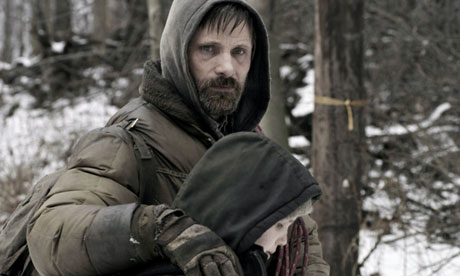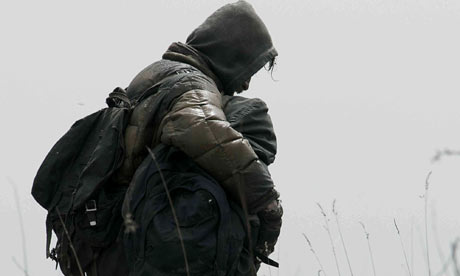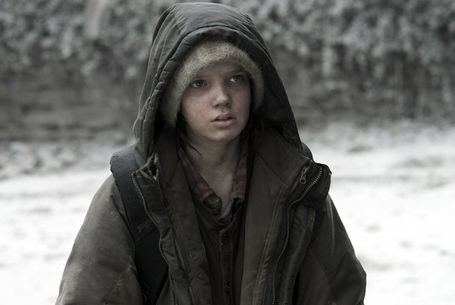- This is a novel less about survival than about the relationship between a father and his son.
- McCarthy needed something that is no longer present to represent life as it used to be in the time before.
- The man and woman represent the different ways in which humanity might react to such a situation.
- This is a novel about minute by minute survival. Showing the man resisting the temptation of his memories brings this home to the reader.
- The woman has a powerful and ambiguous symbolic function in the novel: she represents both the giving of life and the temptation of death.
- There is no space in this pared back narrative of survival for a third main character.
- The vulnerability of the boy would seem far less evident if his mother were there as well.
- For the man, the woman’s absence is a constant reminder of the alternative to struggling to survive.
Task: Place the 8 meanings in order of relavance, from most to least:
5,2,8,4,3,7,1,6
Least Important: 6
"There is no space in this pared back narrative for a third main character"
Since the novel is not solely based upon the relationship between the man and the boy - due to the lack of emotion for each other; the only emotion is shown at the end after the death of The Man. Including another character probably would not affect the novels main objective of keeping to a savage post apocolyptic world. The addition of the woman may affect the overall chances of survival for The Man and The Boy by making it more difficult for the trio to find enough food for all 3 of them; but we could say by the way the novel is planned out that the woman may act in a submissive manor, letting the man take control of their journey south.
Most Important: 5
"The woman has a powerful and ambiguous symbolic function in the novel: she represents both the giving of life and the temptation of death"
The woman is shown throughout the book in a way that can be viewed in several. We find out early on in the book that the woman does commit suicide, this can be viewed as a cowardly act to take on her part. We could also say that this is not what a mother would normally do, to leave a child with his father in a dead world with danger round every corner and to go and kill yourself instead seems almost as a 'Cop out' on her part.
Although, from a more feministic viewpoint, we could say that the woman is actually the strongest character in the novel. For example, she does not take her life quickly or painlessly with a bullet, she leaves two bullets spare for the man and the boy when they seem is right to use them and instead kills herself with volcanic glass by 'slitting' her wrists. This method would seem a painful way to kill yourself, but this decision could be viewed as the strongest move to take as well as showing the guilt of the woman for making this decision. Her final decision to kill herself without using bullets, and if The Man did not die when he did, could potentially save their lives or at least take the Boys life away from the misery of this world.



.jpg)

